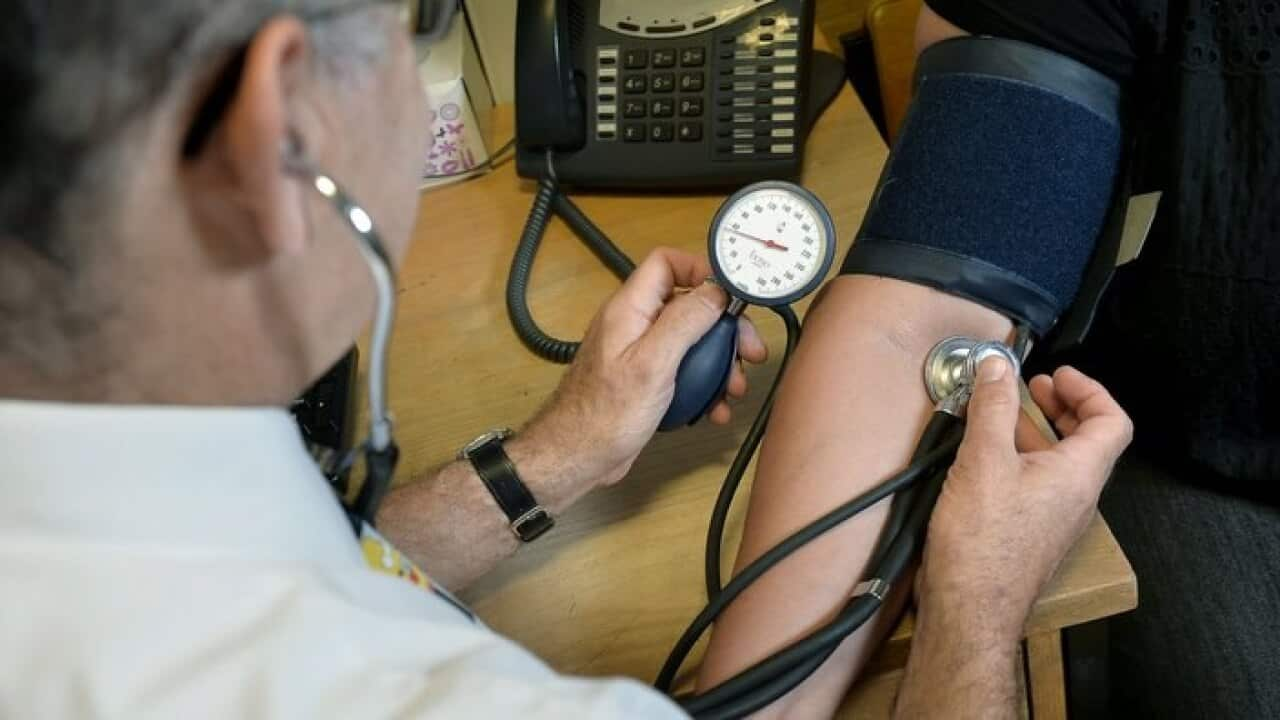As we continue to navigate the coronavirus pandemic, many hospitals and health services are actually less busy than usual.
Fewer patients are presenting to emergency departments and primary care services and .
They might be choosing to stay away for fear of catching coronavirus, or because they don’t want to put pressure on the health system at this time, or both.
But particularly if you’re someone with a chronic health condition, it’s essential you continue to seek medical care routinely, and especially in an emergency.
Delaying or avoiding necessary medical care could lead to preventable deaths.
Anxiety and fear
Delaying or avoiding medical care despite health problems is . People often downplay the severity of their symptoms, believe they will resolve on their own or perceive they can manage themselves at home.
This reasoning is now fear of becoming infected with COVID-19 as well as overburdening the health-care system.

Some people living with chronic conditions such as heart failure, lung or kidney disease may be more concerned about contracting COVID-19. This is justified. People with tend to get sicker than the overall population if they catch coronavirus, and are .
Concerns about overburdening the health-care system, which people already perceive to be stretched, has been a common reason for , even before the current pandemic.
But constant of overflowing hospitals and scarce resources during the coronavirus crisis may serve to validate this concern for people who are considering whether or not to seek medical care.
While it’s too early to have definitive statistics, suggest attendance at hospitals and general practices could be down by as much as 50 per cent.
Why it’s important to continue to seek care
People with chronic health conditions may need to seek medical care for a range of reasons. This could be routine care for a chronic disease such as chronic obstructive pulmonary disease (COPD), asthma, diabetes, cancer, bowel or heart disease.
They may need to seek unscheduled care if their condition flares up. For example, for a person with , it would be important for them to seek timely health care if they were experiencing symptoms such as breathlessness, fatigue, or peripheral oedema (the accumulation of fluid causing swelling, usually in the lower limbs).
Importantly, if people delay seeking care for chronic illnesses, we may see an increase in preventable deaths.
For example, for people with heart disease, untreated symptoms could lead to , need for intensive care, and death.
It’s also possible if a large number of people avoid seeking treatment now, hospitals will find themselves when the pandemic is over.
You can go out for medical care
While the global public health messaging urges people to stay home to save lives, it’s important to understand one of the key exemptions is medical treatment. And this doesn’t apply only to people with COVID-19 symptoms.
Regular GP or specialist appointments
People with chronic conditions may already be receiving advice from their health professionals about how regular appointments will be conducted.
To minimise risks to staff and patients, many health services are offering telehealth appointments (via phone or video conference). It’s best to contact your GP or specialist by phone prior to your appointment to see whether this service is available and appropriate.
There will be times when a telephone or video-conference is not suitable, such as when your doctor needs to perform a physical examination, administer therapies including medications, or you need tests such as blood tests or x-rays.
If you do need to attend a clinic or hospital in person, you should be assured they’re taking additional precautions to prevent the spread of infection during this time.
If symptoms flare up or in an emergency
If your symptoms get worse, you should still contact your GP or specialist if this is your normal course. This is important even if you don’t think your symptoms are urgent.
And it remains critical that in life-threatening circumstances – like if you believe you’re having a heart attack or – you seek medical attention immediately by calling triple zero (000).
These are medical emergencies and our hospitals are well-equipped to respond, even during COVID-19.

Some practical tips
The offer the following advice for people living with chronic conditions during COVID-19:
- keep looking after your health and stay connected with your doctor
- get your annual flu vaccination
- practise physical distancing and good hand hygiene
- stay active and eat a healthy diet.
And most importantly: don’t ignore a medical emergency.
Caleb Ferguson receives funding from the Heart Foundation (Australia).
Michelle DiGiacomo receives funding from Cancer Australia and Cancer Institute NSW.
Serra Ivynian does not work for, consult, own shares in or receive funding from any company or organisation that would benefit from this article, and has disclosed no relevant affiliations beyond their academic appointment.


